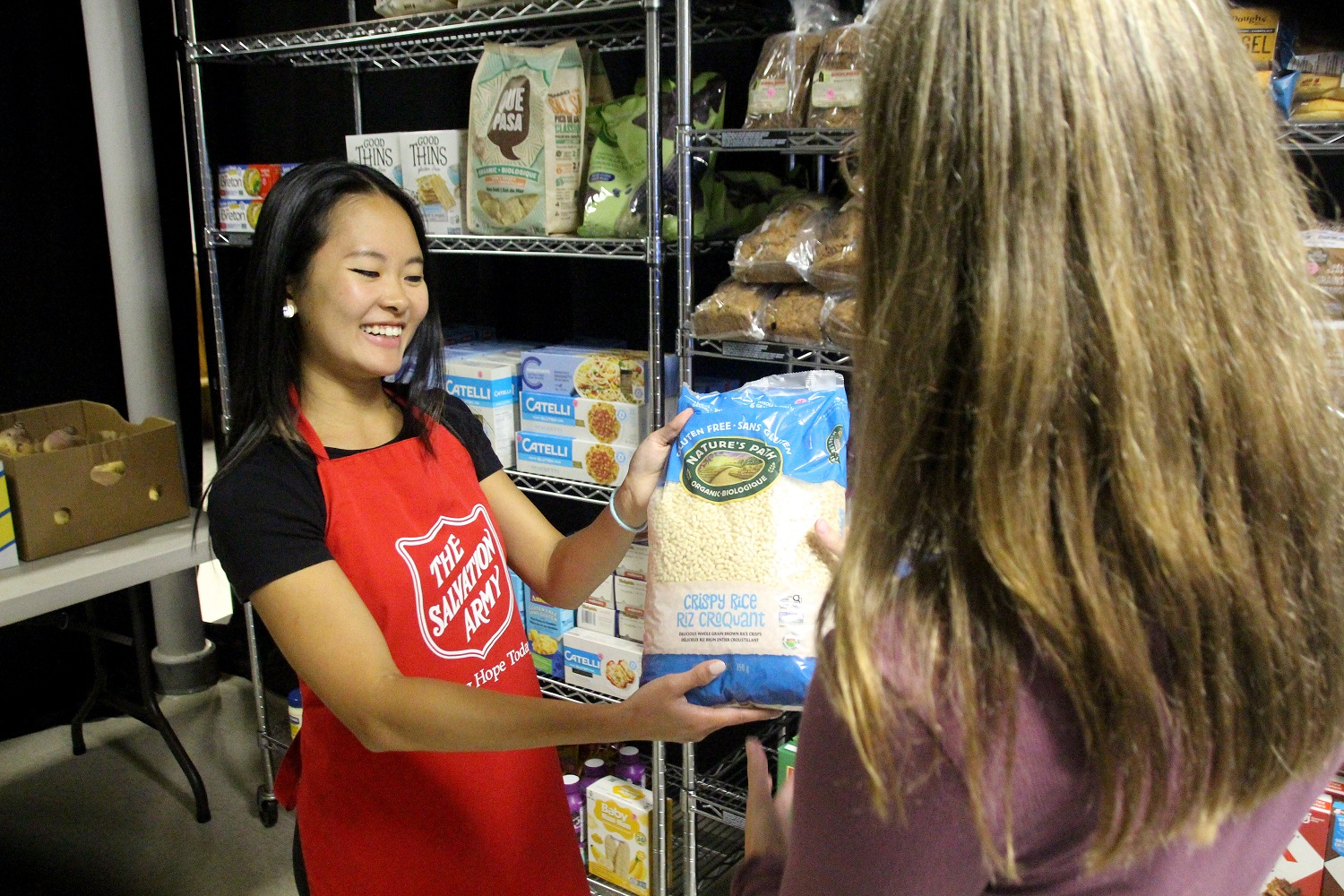
Gluten-Free Food Share Addresses a Growing Need
Over the summer, The Salvation Army’s Encounter Church, which serves Sackville, Bedford and Dartmouth in Nova Scotia, launched an innovative program that ensures people with dietary restrictions can access food support without worrying about health implications.
The Gluten-Free Food Share is a pilot project that helps guests facing food insecurity who also live with celiac disease or gluten intolerance. Major Brent Haas, lead pastor at Encounter Church, says the idea originated from conversations with community partners.
“We were hearing some people couldn’t have certain foods because of their dietary restrictions. From the donations we received, we had little to no gluten-free items,” Major Haas says.
This program is one of a kind in the Greater Halifax region. With support from Food Banks Canada, the initiative operates twice a month and is organized like a small grocery store. Guests can select a time slot and then pick the items they need.
Leading the project are Community Ministries Director, Rebecca Bowerman and coordinators Grace Greene and Vanesa Fung, who manage logistics and connect with guests. Every passing week, the program gets more participants.
“We had four people the first week, the next week 11 and at this time we have about 25. Everyone who came through was shocked by the amount of food that they were able to get,” Grace shares.
Instant Impact
For those with dietary restrictions and struggling financially, previous visits to food banks could be frustrating due to the lack of suitable items. The new food share is proving to be lifechanging for some of these guests.
“This fills such a great need. The disability tax credit for celiac is inaccessible. I have to go on maternity leave soon, so my household income will be dropping and gluten-free food is so expensive. Thank you so much for this. Hopefully it will continue,” says Eliza, participant of the program.
Another guest, Matthew, was pleasantly surprised by the availability of items and the way it is set up.
“This is an opportunity that you won’t find elsewhere. And I think it’s cool that it is set up like a market and I get to choose the items instead of just receiving a box of food with stuff that you may not like or be able to consume. Thank you for organizing this food share. It is helping so many people,” he says.
Thinking Long-Term
The pilot project will be running until October, but The Salvation Army hopes to be able to continue this program permanently. The staff are working hard to make it sustainable.
“It is going to come down to affordability. Our hope and plan is to continue this food share longer than October and we are working hard to make that happen,” Vanesa adds.
The cost of the program isn’t just the food. There is also a need for additional storage space and staff to help with the increased service.
“Gluten-free items have to be fresh and are expensive. Volunteers and donations are what will help us sustain it,” Major Haas says.
Despite the hard work and community support required for the long-term success of this program, Major Haas believes that the difference it is already making in people’s lives will help the initiative to remain strong.
“It’s all about seeing transformation and inspiring others. I’ve already heard from people in other parts of the country that they would love to see something like this in their communities.”
By Juan Romero